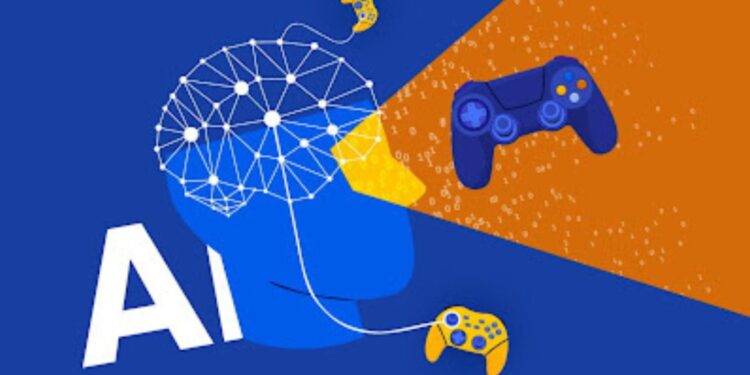The gaming industry is undergoing a massive transformation, driven not only by next-gen consoles or improved graphics but also by the rise of artificial intelligence. AI is rapidly changing the way games are made, but it also brings new, additional features to the players.
Whether you’re a developer creating an immersive gaming world or creating content for the Twitch platform, AI can help your creativity. Let’s check out the features of gaming in the AI era.
Gaming & AI Blend: Main Trends Driving the Industry Further
What exactly is happening in the gaming industry with the advent of artificial intelligence? In fact, both game developers and players benefit. Let’s take a closer look at how this mix is transforming the industry.
AI-Generated Game Worlds & Content
AI is revolutionizing game development, especially when it comes to environment creation and world-building. Take No Man’s Sky, for example, where procedural generation creates over 18 quintillion planets, each with its own landscape, ecosystem, and weather.
Modding communities, especially in sandbox games like Minecraft, are also adopting AI tools to create unique biomes, structures, and quests with minimal manual input. Platforms like Unity have begun integrating generative AI plugins, making it easier for developers to automatically generate textures, levels, and even character animations. These tools lower the barrier to entry, allowing independent developers to create rich, immersive content while working in small teams.
The Rise of AI Tools for Gaming Content Creators
AI is also driving new trends in tools designed for game content creators. We are talking about editing cutscenes, creating subtitles, writing scripts, and more — tasks that once required long hours of work.
For example, you can use tools to identify spikes in action in a game, creating highlight reels. You can also use AI tools for voiceovers, thumbnails, and even dynamic stream overlays.
Platforms like OnlyMonster.ai help gaming creators organize content, automate performance tracking, and manage their digital workflow — allowing more time to create and engage, and less time lost in disorganized media folders or spreadsheets.
Smarter NPCs and In-Game Dialogue
It wasn’t long ago that NPCs in games simply repeated the same two phrases. Fortunately, that era is now a thing of the past. With AI language models like ChatGPT in game mods and development processes, NPCs are becoming more conversational, reactive, and believable. For example, in Skyrim, modders used GPT-based tools to give characters dynamic personalities and unscripted dialogue. All of this helps create a world that feels truly alive.
With AI, branching dialogue paths can be generated that lead to increased engagement. In simpler terms, dialogue trees can evolve in real time and offer a new level of immersion.
Personalized Player Experiences via AI
In addition to all of the above, AI can track how an individual player is experiencing the game. The tools analyze behavior and adapt accordingly. For example, if a player is experiencing some difficulty, they can receive a hint. In the case of racing games, opponents can begin to imitate your driving style in order to create a more realistic experience.
These personalized experiences make games more interesting and accessible. Now, each player can have a unique experience, rather than enjoying something that is standard for everyone.
AI-Powered Game Testing and Balancing
No game goes to market without a testing procedure. It is worth noting that this is one of the most labor-intensive development processes. AI-based bots can also help in this matter. How can they help?
These bots are able to simulate game sessions and quickly identify various problems. For example, level balance, progress cycles, and potential errors. This helps developers tune games before launch by quickly coping with the testing procedure.
It is worth noting that some developers use artificial intelligence to simulate user interaction. That is, to predict which parts of the game will hook players and which may cause rejection. As a result, developers get smart game design, faster iteration, and fewer fixes after launch.
Conclusion
Artificial intelligence isn’t a passing trend — it’s an evolution in the world of gaming. More and more tools are emerging that can help with different stages of game development and content creation. Of course, the industry won’t stand still, and artificial intelligence will continue to change the gaming landscape. With AI, the possibilities are endless.




















